Documentary screened in Collins in honor of Autism Awareness Month
Student-produced film Lost Potential sheds light on employment crisis for those with autism.
By Janel Shoun-Smith| 615-988-7078 |
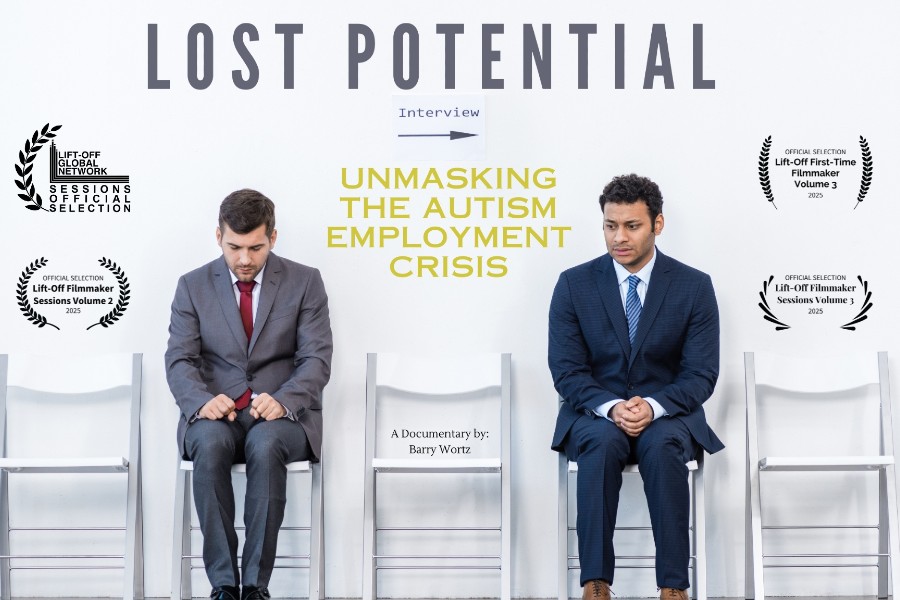
When Barry Wortz (MFA ’24) entered Lipscomb’s film and creative media program in fall of 2022, he expected to earn a degree to allow him to teach in higher education full-time. He did not expect to kick off a journey of self-discovery that would lead to creating a film focused on a little-known issue in America: the struggle for employment by those on the autism spectrum.
Wortz’s capstone project for his MFA, a documentary titled Lost Potential: Unmasking the Autism Employment Crisis, was shown to the public in Collins Alumni Auditorium on Tuesday, April 22 at 5 p.m. The screening was timely as April was Autism Awareness Month. The film was followed by a panel discussion of local experts.
It is a deeply personal film for Wortz, whose own journey is followed in the film along with key statistics, success stories and an interview with Temple Grandin, a pioneer in advocacy for people with autism. Wortz was diagnosed with level 1 autism and attention deficit/hyperactivity disorder in 2023 as an adult, after having already made his way in the working world and starting a family.
“Of all disabilities, autism ranks the lowest for employment. Nearly eighty percent of people with autism, worldwide, are unemployed or underemployed,” said Wortz, who is also employed at Lipscomb as a graduate recruiter and an adjunct instructor for the George Shinn College of Entertainment & the Arts. “Lost Potential will explore societal attitudes and misconceptions that hinder the inclusion of people with autism in the workforce,”
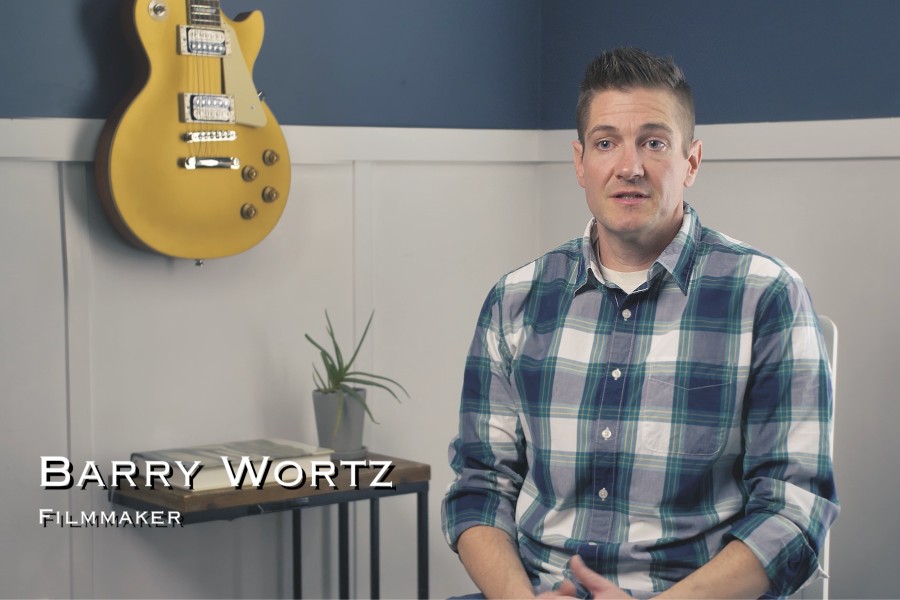
Prompted by observations of their son, who has a sensory process disorder, Wortz and his wife began talking about some of his behaviors and experiences over the years, and he decided to check with medical professionals for himself. His diagnosis (what was formerly called Asperger’s Syndrome) opened the door to a lot of self-reflection on his life and curiosity about life with autism.
As he began reading and researching more, he came across a statistic noting that 85% of people with autism are unemployed or underemployed. That revelation kicked off an idea to explore that situation as his capstone project.
“As a person with autism, I know the struggle with finding proper employment,” said Wortz. “Now that I know about it, I feel like I may have lost jobs in the past because I may have presented my thoughts and attitudes in a way that seemed like I wasn’t interested.”
His decision to include his own journey with autism came after speaking with a producer of the A&E show The Employables, which follows job seekers with conditions such as autism or Tourette Syndrome. The producer encouraged him to share his own story as the central throughline of the film. “He told me, ‘Your story is everybody’s story,’” said Wortz.
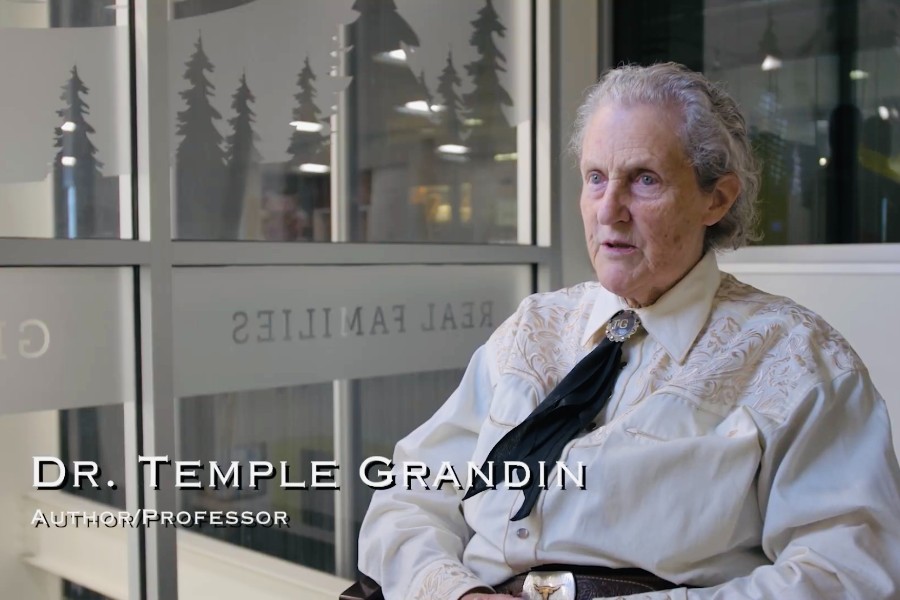
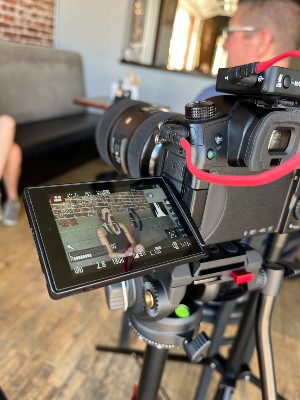
In Lost Potential, Wortz strives to show the reality that so many people face through interviews with people with autism as well as experts and to encourage those with autism to leverage what he calls their “superpowers”.
“I tried to show some steps that an organization can do to help employees with autism flourish in a job. The truth is that they are very focused, very driven and very task-oriented, so if you set them up for success, you can have a very productive employee,” he said.
The film shares success stories of individuals with autism who have overcome barriers and excelled in their chosen careers, and showcases organizations that have implemented inclusive hiring practices, emphasizing the positive impact on both employees and the workplace.
Businesses highlighted in the film include Brewability, a pizzeria and brewery in Colorado, and On the Avenue, a creative services studio in Nashville.
“Autism affects nearly eighty million people across the globe and companies should embrace the value, strength and talent of people on the spectrum,” said Wortz.
In the film, Wortz explores how the stigma around people with autism developed throughout history. To prepare, Wortz read through historical articles in medical journals and watched medical reels on how people with autism were treated in eras when they were often institutionalized. “I tried to show the journey from there to where we are today,” he said.
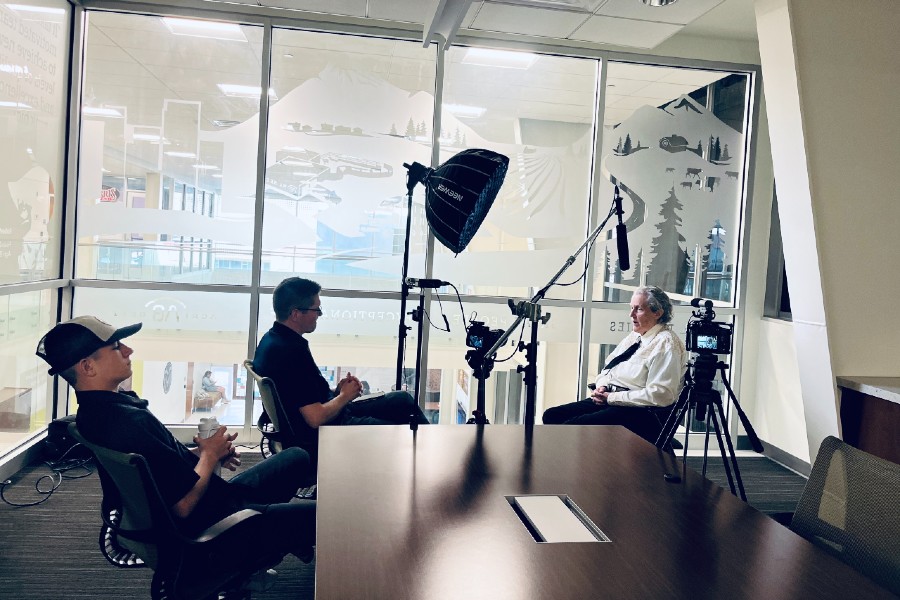
Filmmaker Barry Wortz interviewing Temple Grandin, author, academic and highly influential advocate for the understanding of autism since the 1980s.
The film also shows the broad range of capabilities of different people with the diagnosis.
“I want to help people understand that it is called ‘the spectrum’ for a reason. You can’t assume one person with autism is just like every other person with autism,” said Wortz. “It is very individualized. One thing Temple (Grandin) said in her interview is that if you’ve met one person with autism, you’ve only met that one person with autism.”
Among those who helped Wortz gather information and potential interview subjects were leaders at Nashville Autism Peer Support and Lipscomb’s own Misty Parsley, executive director of the Office of Accessibility and Learning Support.
He also reached out to Grandin, the author of several books since the 1980s on living and working with autism and named to Time magazine’s top 100 influential people in the world in 2010. He was thrilled when she agreed to be interviewed over the phone and on film for the documentary. Through crowdfunding, Wortz raised the funds for he and his family (his 15-year-old son acts as his production assistant in the field) to travel to Colorado State University to interview Grandin.
“That changed the whole scope of the film,” said Wortz.
Wortz, who owned a business doing wedding videos and taught film at Johnson University in Knoxville before coming to study for his MFA, had never created a documentary before Lost Potential. It took him a year to produce the 43-minute-long documentary.
The film had its first showing in March in Maryville, Tennessee, at Partnership Christian Church, and it is a Liftoff Global Network Sessions Official Selection. Wortz hopes to book the film at conventions, conferences and organizations across the country to raise awareness of the autism employment crisis. He’s also planning to submit it for consideration in various film festivals.